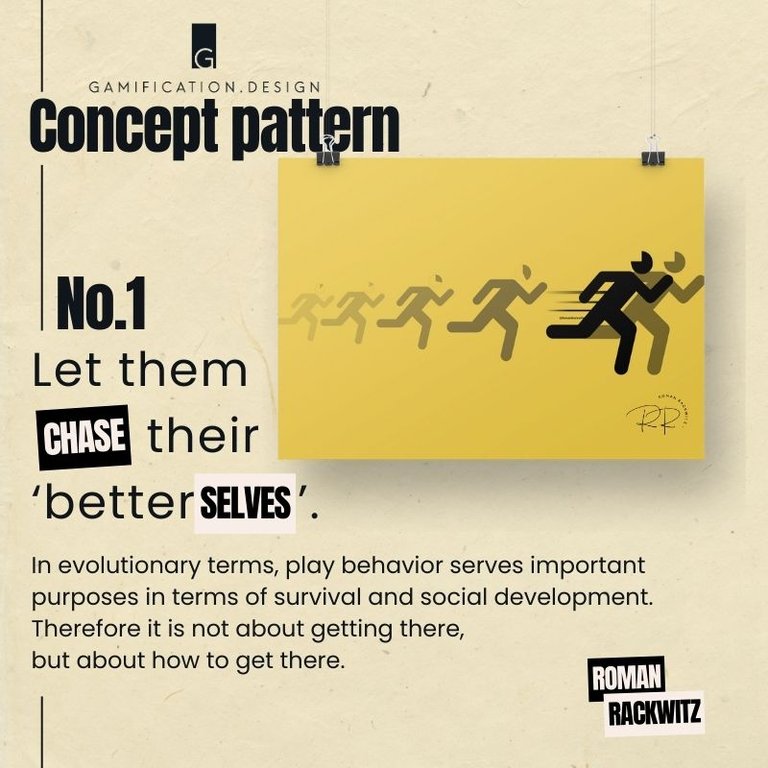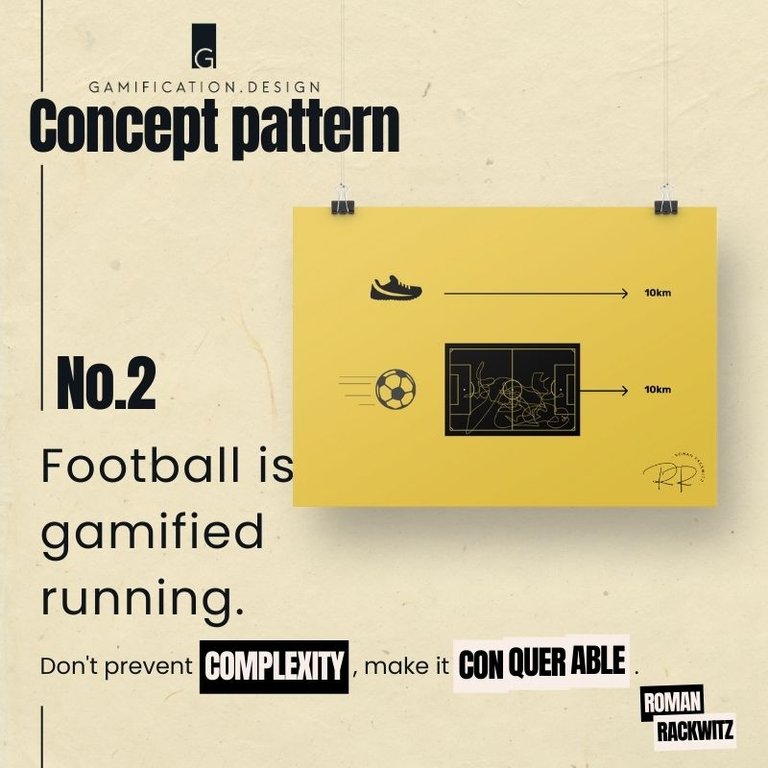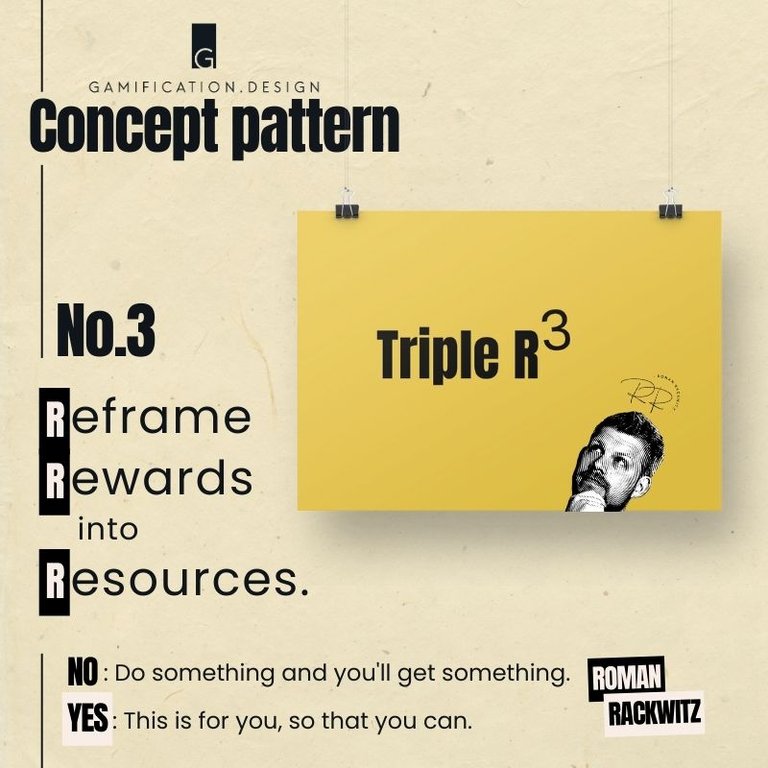There is no ready-made to-do list for gamification. There is no blueprint with which you can copy and paste a good design everywhere. Over the last decade, however, a few Gamification patterns have emerged that are always available to support gamification design. Now we also use them in combination with NFTs.
What’s Happening (with patterns in Gamification)
The field of application of both gamification and NFTs is diverse. Basically, this can be anywhere where people have an impact through their behaviour. This heterogeneity of areas of application therefore hardly allows any general statements to be made about effective mechanisms.
For such scenarios, it is worth developing patterns. Patterns are statements that are open enough to be applied flexibly in complex situations, and at the same time offer enough support through their meaning to be able to orientate oneself on them.
Gamification patterns are thus predestined to be applied in the new interaction with NFTs (non-fungible tokens).
I have already explained in other blog articles here on peakd why I think the combination of these two areas is so promising. You can find links to them at the end of this post.
The Big Picture
The field of application for NFTs is currently expanding almost weekly. In the beginning, they were purely ‚collectible images‘, but now they are tickets, financial products, interactive elements, and much more.
Through the use of the so-called Oracles, NFTs will eventually also be directly connected to the real world in real-time and will be able to react to it. The resulting possibilities are not even imaginable today.
And then, yes, we have the opportunity to bring gamification into the NFT universe. From time to time, gamified NFTs are mentioned here. (Discloser: I am also involved here as a gamification designer in one of the larger NFT projects.)
But I have also discovered NFTs as a valuable tool for myself. I see NFTs mainly as a supplement to our gamification projects. While gamified NFTs apply gamification in the sense of the respective NFT project, I also like to look at NFTs applied in the sense of a gamification project. So turned around 180 degrees. I call this NiFTed Gamification. How clever of me 😂. We are also currently developing our own platform as SaaS for such a deployment.
Be Smart About Patterns in Gamification
Over the years, several patterns have emerged to help us in our daily gamification design work. I would like to introduce you to three of the most important patterns here. Of course, I will then show these three gamification patterns directly in effective interaction with NFTs.
Chasing Our Better Selves

This pattern is dominant. No project in the past 10 years when it could not be counted among the core.
‚Chasing our better selves‘ stands for the characteristic of people in intrinsically motivated activities, especially in games, to derive a special satisfaction from personal progress.
This can be particularly observed in moments of ‚failure‘ in games. Especially when one misses the goal, but at the same time draws a personal learning effect from it and thinks that now he is better prepared to face the challenge, a noticeable motivation effect can be seen.
Conversely, it is often even disadvantageous, in terms of the motivation of the person, if he reaches the goal without having the feeling of a personal improvement.
Why Pattern #1 Matters for NFTs
I have already written about the unique uniqueness of a dynamic NFT. ‚Let them chase their better selves‘ plays perfectly into the hands of this characteristic. Because with every dynamic change of the NFT, especially in response to an event in the offline world, you pay directly into it.
The human brain is a perfect pattern recognition machine. If the NFT changes, e.g., its visual design, the brain very quickly start looking for correlations that explain this change. If the gamification design is such that the NFT is interpreted as a personal avatar or as a visualized dashboard, one intuitively searches for the context in one’s own actions.
The change itself visualizes, and communicates, thus perfectly the personal development of its owner (forward).
Football is gamified running

This is pattern #2: ‚Football is gamified running‘. The basic idea is simple and yet hardly noticed: A monotonous activity (like running) becomes secondary (in football), as one is challenged by further tasks (complexity).
There will be more on this topic in the future, too, or which scientific models are behind pattern #2.
In the context of this article, it is enough to know that we humans are not so much after the easy and quick as we are always made to believe.
Isn’t it funny that most of our voluntary leisure activities have to do with facing challenges? Games, sports, and hobbies are not supposed to bring us to the end quickly. On the contrary. Also, we seem to like actions that give us the opportunities for different roles that we can fill. Depending on how we choose. Just like soccer.
Yes, you also run your 10km there, but you have to solve a lot of other things at the same time. You take on roles. Defence, attack, passer, flanker, and so on.
We enjoy complex situations as long as we have the feeling that we can master them in the foreseeable future. Simple tasks, on the other hand, hardly have a chance to bind us emotionally.
Why Pattern #2 Matters for NFTs
As we know, NFTs in turn can own other NFTs. They can have properties that may need to be worked out, unlocked, and interdependent. Some can be used in combination, while others only work as either/or.
Complexity is something you can control very well with NFTs. Here, too, NFTs and patterns fit together well.
Reframe Rewards into Resources

Pattern #3 refers to a really stubborn, and – in my opinion – fatal misconception of the gamification scene: the meaning of reward.
Nobody plays a game because they are rewarded for it afterward. For that reason alone, gamification projects that put a strong focus on points and badges can’t really be taken seriously.
Mostly, however, they then argue with the presence of points and badges in video games themselves. However, they tend to overlook the fact that these elements are more of a feedback mechanism in the game than a reward. And no, it’s not the same.
What was a total eye-opener for me was the moment when I realized that in most game scenarios achievements, i.e. new weapons, but also points, materials, knowledge, and much more, were never the end of a situation, but most often already the beginning of a new task.
In the player’s mind, it is recognized not as a reward for something past, but as a necessary resource for meeting the challenge that is yet to come.
That changes pretty much everything. And that’s a topic for a deep dive elsewhere. Today it is about something else.
Why Pattern #3 Matters for NFTs
One of the interesting features of NFTs is that they can own other NFTs themselves. So you can clearly link one NFT to another. This of course allows assigning properties, benefits, and the like to an NFT itself. In other words, an NFT can receive and possess (enabling) resources.
Of course, it can (or even should?) be directly coupled with pattern #1. If the NFT receives a resource, it also evolves visually. Since such a resource enables the owner of the NFT to new possibilities, this is also consistent with the statement ‚chasing your better self`.
The great ability of Pattern #3 is that it makes the people involved look to the future with ambition and energy rather than looking back with satisfaction, as rewards encourage.
In combination with NFTs, this is thus even more effectively perceived by its owner as a valuable tool. This is precisely what promotes emotional attachment and thus increases the subjectively perceived value of the NFT. An indispensable feature.
The Bottom Line of NFTs Enhanced With Gamification Patterns
Again, patterns fulfil their role as a guiding medium. In almost all projects I know of so far (except as pure collectibles), NFTs are meant to establish a direct emotional connection to their owner.
The patterns have been created exactly for this purpose. These 3 alone show the potential of their effect in case of a joint operation.
NFTs will play a big role for me in the future, in the context of digital gamification. A platform that allows to create, manage and distribute dynamic NFTs together with their properties is under development. In designing the rules of cooperation between NFTs and their owners, we will follow our patterns according to our experience. These three and all others.
You want to learn more about Gamification and how to take advantage of other Behavioural Psychology insights? Get in touch